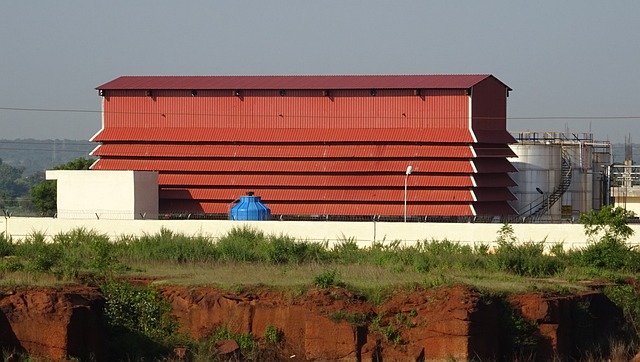When planning a project for large industrial sheds, selecting the appropriate materials is crucial for ensuring durability, functionality, and cost-effectiveness. The choice of materials can greatly impact the sheds’ strength, maintenance requirements, energy efficiency, and overall lifespan. So, this article will explore various materials suitable for large industrial sheds and discuss their advantages and considerations. By understanding these options, you can make an informed decision that best suits the requirements when you wish to get large sheds.
Steel
Steel is a favoured option for large industrial sheds thanks to its remarkable strength, durability, and versatility. It boasts a high load-bearing capacity and is resistant to corrosion, fire, and pests, making it ideal for even the harshest conditions. With the ability to be easily personalised and modified, steel structures can be tailored to specific project requirements while staying within budget. Utilising 0.42 BMT corrugated steel ensures suitability for industrial environments. Galvalume columns and rafters further enhance the shed’s durability, making it a cost-effective and low-maintenance choice.
Concrete
Concrete is a commonly employed material in industrial sheds, particularly for flooring and foundations. Its exceptional strength and durability, make it well-suited for heavy machinery and high-traffic zones. Also, Concrete structures exhibit resistance to fire, pests, and adverse weather conditions. Nonetheless, the construction process for concrete can be time-intensive and necessitate skilled labour, factors that should be considered when opting for this robust and reliable building solution.
Wood
This is often chosen for commercial storage sheds, particularly for smaller-scale projects or those focusing on aesthetics. It provides natural insulation and is cost-effective. Wood structures are easy to construct and modify according to specific needs. However, it’s important to note that wood is more vulnerable to fire, pests, and moisture, necessitating regular maintenance and treatment.
Aluminium
Aluminium is a lightweight material that offers good strength and corrosion resistance. It is often used for industrial shed roofing and cladding due to its reflective properties, contributing to energy efficiency. Aluminium structures require minimal maintenance and are recyclable, making them environmentally friendly. However, aluminium may not be suitable for areas with high wind loads.
Fibreglass
Fibreglass is a lightweight and durable material frequently utilised for roofing panels in storage sheds. It provides exceptional thermal insulation properties, minimising the requirement for additional insulation materials. Fibreglass exhibits resistance to corrosion, UV radiation, and chemicals. However, it is essential to note that fibreglass may be susceptible to cracking and necessitates careful installation and regular maintenance to ensure its longevity and optimal performance in industrial environments.
Polycarbonate
Polycarbonate, a transparent material, is widely used for industrial shed skylights and wall panels due to its high impact resistance, and UV protection. And excellent thermal insulation properties. Polycarbonate sheds allow abundant natural light, reducing the need for artificial lighting during the day. However, regular cleaning is essential to maintain transparency, and it’s important to note that polycarbonate options may have a higher price than alternative materials, factors to consider when choosing commercial shed applications.
Composite Materials
Composite materials, such as fibre-reinforced plastic (FRP) or sandwich panels, combine different materials to achieve specific properties. They offer a balance between strength, insulation, and cost-effectiveness. Composite sheds are lightweight, durable, and resistant to corrosion, moisture, and pests. However, selecting and installing composite materials require expertise to ensure proper performance.
Choosing the right materials for your large industrial shed project is essential for achieving a robust, functional, and cost-effective structure. Some options for large sheds are steel, concrete, wood, aluminium, fibreglass, polycarbonate, and composite materials. Each material has its own advantages and considerations related to strength, durability, maintenance, energy efficiency, and cost. So by evaluating your project requirements and consulting with experts, you can make an informed decision ensuring the success and longevity of your large commercial shed.
Related Post:







